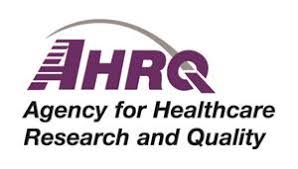 NIH HEAL Initiative Announces Funding Opportunities Related to Health Equity in Pain Management, Myofascial Pain, and Sickle Cell Disease
NIH HEAL Initiative Announces Funding Opportunities Related to Health Equity in Pain Management, Myofascial Pain, and Sickle Cell Disease
The HEAL Initiative from the National Institutes of Health (NIH) has released information on a number of funding opportunities related to pain management.
HEAL Initiative: Advancing Health Equity in Pain Management is accepting applications for funding, now through December 9, 2021. This funding opportunity seeks to accelerate development, testing and implementation of evidence-based interventions—that are culturally and linguistically appropriate for NIH-designated populations that experience health disparities (HDPs) in the United States—to mitigate disparities in provision of care and treatment decisions, reduce susceptibility to chronic pain and improve patient outcomes.
The HEAL Initiative has also released three Notices of Intent to imminently publish three additional pain-related funding opportunities:
- Pragmatic and Implementation Studies for the Management of Sickle Cell Disease Pain
- Sickle Cell Disease Pain Management Trials Utilizing the Pain Effectiveness Research Network Cooperative Agreement
- Developing Quantitative Imaging and Other Relevant Biomarkers of Myofascial Tissues for Clinical Pain Management
AHRQ Seeks to Fund Research Projects Pertaining to Transitions in Care
 The Agency for Healthcare Research and Quality (AHRQ) is currently accepting applications for large research projects related to ambulatory care settings and long-term care facilities with a focus on implementing evidence-based processes to improve patient safety, especially those involving transitions in care. AHRQ is interested in studies in these two settings that develop, utilize, and evaluate strategies to implement existing measures, metrics, tools or practices that have already been validated and have been shown to be effective in improving patient safety sites.
The Agency for Healthcare Research and Quality (AHRQ) is currently accepting applications for large research projects related to ambulatory care settings and long-term care facilities with a focus on implementing evidence-based processes to improve patient safety, especially those involving transitions in care. AHRQ is interested in studies in these two settings that develop, utilize, and evaluate strategies to implement existing measures, metrics, tools or practices that have already been validated and have been shown to be effective in improving patient safety sites.
Applications are due by January 25, 2022, with letters of Intent due 30 days prior to the application due date.
Board of Pharmacy Specialties Calls for New Specialty in Pain Management
 The Board of Pharmacy Specialties (BPS) is moving forward with further consideration of the creation of a new specialty in Pain Management Pharmacy. The BPS Board of Directors will now determine, in detail, each of the criteria deemed necessary for the creation of a new specialty: need, demand, number/time, specialized knowledge, specialized functions, education and training, and transmission of knowledge. In deciding to pursue creation of this new specialty, the BPS Board of Directors noted an increase in demand of a specific body of knowledge and skills to provide effective pain management services to patients with increasingly complex care needs.
The Board of Pharmacy Specialties (BPS) is moving forward with further consideration of the creation of a new specialty in Pain Management Pharmacy. The BPS Board of Directors will now determine, in detail, each of the criteria deemed necessary for the creation of a new specialty: need, demand, number/time, specialized knowledge, specialized functions, education and training, and transmission of knowledge. In deciding to pursue creation of this new specialty, the BPS Board of Directors noted an increase in demand of a specific body of knowledge and skills to provide effective pain management services to patients with increasingly complex care needs.
FQHCs Prescribe Fewer Opioids Since CDC Guideline, Barriers Impede Use of Alternatives
 A new study of Federally Qualified Health Centers (FQHCs) shows that FQHCs have prescribed fewer opioids to their patients than national and state averages since implementation of the CDC Guideline for Prescribing Opioids for Chronic Pain. However, this report isn’t all good news, as primary care providers (PCPs) report limited time with patients, a lack of training providers in medication-assisted treatment, and provider fear related to opioid prescribing. Further, PCPs at FQHCs report trouble accessing alternatives to opioids for treating chronic pain, citing systemic and patient barriers.
A new study of Federally Qualified Health Centers (FQHCs) shows that FQHCs have prescribed fewer opioids to their patients than national and state averages since implementation of the CDC Guideline for Prescribing Opioids for Chronic Pain. However, this report isn’t all good news, as primary care providers (PCPs) report limited time with patients, a lack of training providers in medication-assisted treatment, and provider fear related to opioid prescribing. Further, PCPs at FQHCs report trouble accessing alternatives to opioids for treating chronic pain, citing systemic and patient barriers.
CMS Releases Annual Update of Medicare and Medicaid Opioid Prescribing Rates
 CMS has released annual updates to its opioid prescribing mapping tools, interactive geographic comparisons of de-identified opioid prescriptions filled within the United States. The mapping tools allow users to see both the number and percentage of opioid prescriptions in the Medicare Part D and Medicaid Programs. The tool further reflects the percentage of a prescriber’s total prescription claims that are opioid prescriptions.
CMS has released annual updates to its opioid prescribing mapping tools, interactive geographic comparisons of de-identified opioid prescriptions filled within the United States. The mapping tools allow users to see both the number and percentage of opioid prescriptions in the Medicare Part D and Medicaid Programs. The tool further reflects the percentage of a prescriber’s total prescription claims that are opioid prescriptions.
 On October 28, U.S. Pain promoted a Virtual Advocacy Day to emphasize the need for access to a full range of multidisciplinary treatments and better coordination of these treatments to tackle chronic pain.
On October 28, U.S. Pain promoted a Virtual Advocacy Day to emphasize the need for access to a full range of multidisciplinary treatments and better coordination of these treatments to tackle chronic pain.
The request is to reach out to your representatives in Congress who are in session right now and request that the Pain Management Task Force (PMTF) Report, which strongly advocates the importance of individualized multidisciplinary care, be disseminated to frontline practitioners across the country. Click on the link below to easily get in touch with your Congressional representatives and advocate for meaningful change.
